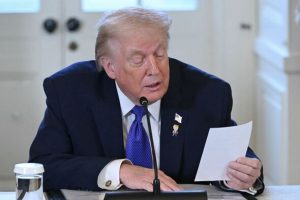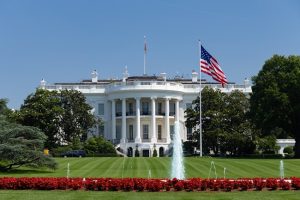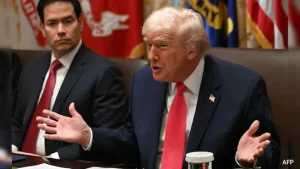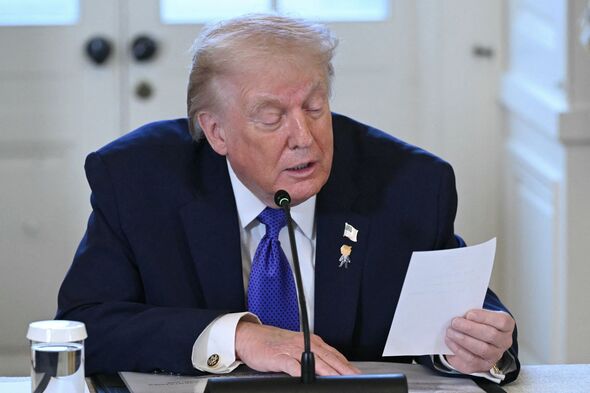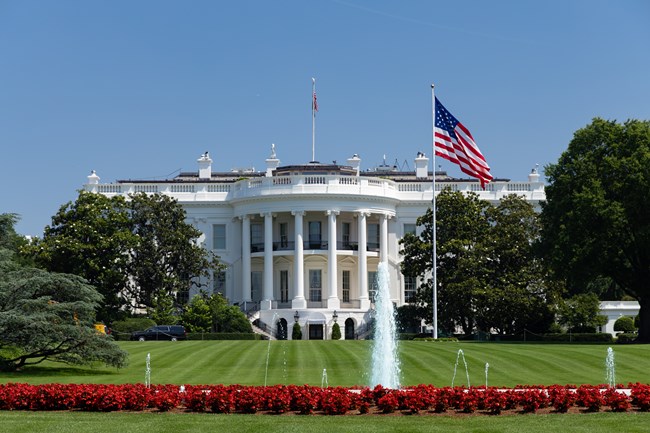A major national security investigation has gripped Washington, D.C., as federal authorities announced charges against a senior government adviser accused of unlawfully retaining a significant volume of classified documents and meeting with foreign officials under circumstances that raise serious questions. The allegations have sent shockwaves through the policy and intelligence communities, prompting renewed scrutiny of how sensitive information is handled within the corridors of power.
According to prosecutors, the adviser is alleged to have removed and retained more than a thousand pages of documents from secure government facilities, including materials marked as “TOP SECRET” and “SECRET.” Investigators claim that these materials were discovered in the individual’s home during a court-authorized search, stored in locked filing cabinets, a basement office, and even in trash bags. Federal authorities contend that some of the documents were printed multiple times and that colleagues were allegedly asked to assist in printing classified information on at least two occasions.
The timeline of the alleged offenses, as detailed in court filings, stretches over several years. In the most recent months prior to the arrest, investigators say the adviser printed highly sensitive documents related to U.S. military capabilities and other national defense matters. Surveillance video and facility logs reportedly show the individual leaving government offices carrying briefcases or envelopes that may have contained classified materials. While there is no confirmation that any classified information was transmitted to foreign actors, the circumstances have raised serious concerns.
Adding to the gravity of the situation are repeated interactions between the adviser and officials from a foreign government. Prosecutors allege that the individual met with these officials multiple times, including dinners and offsite meetings, while in possession of sensitive materials. In one instance, the adviser was reportedly seen carrying a manila envelope to a dinner meeting and leaving without it, suggesting the potential transfer of documents. On another occasion, a gift bag was reportedly exchanged during a meeting. The content and significance of these gifts have not been publicly disclosed, but their inclusion in court documents highlights the attention investigators are giving to these interactions.
During some meetings, discussions allegedly included topics such as international relations, emerging technologies, and strategic developments involving other nations. While there is no charge for espionage, the investigation emphasizes the adviser’s alleged possession of sensitive information during these engagements. Federal authorities have made clear that the case is ongoing and that investigations are still underway to determine whether any of the documents were shared or compromised in a substantive manner.
The adviser’s legal situation is serious. Facing charges under the federal statute covering unlawful retention of national defense information, the individual could potentially face a sentence of up to ten years in prison if convicted. The case has ignited debate about how classified materials are safeguarded within the federal government, particularly when senior advisers move between government service, contractor roles, and academic or policy institutions.
The allegations have reverberated across the foreign policy and intelligence communities. Many experts note that the case highlights vulnerabilities in current document handling procedures, particularly for senior personnel who hold long-term security clearances. The combination of high-level access and extensive scholarly or advisory work can create circumstances where oversight is more difficult to enforce, making robust auditing and accountability mechanisms essential.
The situation took a notable turn when federal authorities revealed the identity of the adviser: Ashley J. Tellis, a long-time foreign policy expert with a distinguished career in government advisory roles and policy research. Tellis has held senior advisory positions within the State Department, contracted with the Department of Defense, and served as a senior fellow at a leading think tank focused on international affairs. Over decades, he has been considered a subject-matter expert on India and South Asian strategic issues, often providing guidance to policymakers on complex geopolitical questions.
The revelation of Tellis’s identity intensified public attention, as his career bridged government, academia, and policy research, highlighting the unusual intersection of influence and access. Court documents describe Tellis as having started working in government roles in 2001 and maintaining access to sensitive defense and intelligence information for years. The case underscores the tension that can arise when individuals straddle multiple roles, including government service, advisory positions, and academic research.
Federal authorities maintain that the investigation uncovered a systematic pattern of printing, retaining, and storing classified materials. The documents allegedly include sensitive analyses, operational details, and assessments of military capabilities. Investigators describe instances in which Tellis allegedly asked colleagues to print classified information for him, and multiple government facilities recorded his movements with potentially sensitive materials. While no evidence has yet publicly confirmed that the materials were shared, the sheer volume and nature of the documents raise serious security concerns.
In addition to document retention, prosecutors note that Tellis’s meetings with foreign officials warrant close examination. Alleged interactions, sometimes occurring over dinner, reportedly included discussions about regional strategic relationships, technology, and defense matters. One meeting in particular, reportedly in September 2022, involved Tellis carrying a manila envelope to a restaurant while engaging with foreign officials. At another meeting in April 2023, the conversation allegedly encompassed Iranian-Chinese relations and emerging technologies, emphasizing the intersection of sensitive policy and potential intelligence risks.
The legal process has now begun. Following his arrest, Tellis was placed in custody pending a detention hearing, and the court set conditions for home confinement under a secured bond. His legal team has pushed back on the allegations, emphasizing that the current charges involve retention of classified documents and not the sharing or dissemination of information to foreign powers. They argue that the actions in question were consistent with scholarly research, policy advising, and legitimate work-related interactions, and they dispute interpretations suggesting clandestine or unlawful activity.
Defense attorneys also noted that certain aspects of the case — such as the manila envelope and the gift bag exchanged during meetings — have been mischaracterized. They maintain that these were standard practices in academic or diplomatic engagements rather than actions intended to transfer sensitive information. The defense emphasizes the distinction between possession of classified materials and the intent or act of distributing them without authorization, which is a critical factor in potential espionage charges.
The case has prompted broader discussions in Washington about how officials, advisers, and scholars handle access to classified information. Experts point to the complex pathways through which senior advisers often move between government roles, contractors, and policy research positions. While such experience is invaluable for shaping informed policy, it also introduces risks if proper protocols and oversight are not consistently applied.
National security officials have been particularly vocal about the need for strict compliance with document handling procedures. The investigation of Tellis highlights the importance of training, auditing, and security protocols to prevent unauthorized retention of sensitive materials. Federal authorities note that even individuals with decades of service and high-level clearances must adhere to stringent procedures to protect classified information from potential compromise.
As the case develops, observers are watching both the legal and policy implications. On the legal front, the proceedings will determine whether prosecutors can establish intent, retention patterns, and potential risk to national security. The outcome could shape future cases involving high-level advisers, contractors, or scholars who interact with classified materials. From a policy perspective, the case serves as a cautionary tale for institutions and individuals balancing access to sensitive information with scholarly or advisory responsibilities.
In addition to national security and procedural implications, the case touches on the broader context of international relations. The alleged interactions with foreign officials underscore ongoing concerns about the intersection of diplomacy, academic engagement, and intelligence vulnerabilities. While the charges focus on document retention rather than confirmed espionage, the circumstances have generated discussion about the risks posed when sensitive information is present during interactions with foreign representatives.
Analysts suggest that the case may prompt further review of access protocols and the management of classified documents across both government agencies and affiliated policy organizations. It may also lead to stricter enforcement of rules governing interactions with foreign officials for individuals holding security clearances. The balance between academic freedom, policy advising, and safeguarding national security has long been delicate, and this case may recalibrate how those boundaries are maintained.
In sum, the federal case against Ashley J. Tellis is emblematic of the complexities surrounding access to sensitive information in the modern era. Allegations that he retained over a thousand pages of classified material and engaged in meetings with foreign officials while in possession of these materials raise serious questions for both the legal system and national security policy. While the charges are currently focused on retention rather than dissemination, the case has captured public attention due to Tellis’s prominence, extensive government experience, and recognized expertise in international affairs.
The investigation continues, and both prosecutors and the defense are expected to present additional evidence and arguments as the case moves forward. Meanwhile, the situation serves as a stark reminder of the delicate responsibilities borne by those entrusted with national secrets, and the critical need for rigorous oversight and compliance with established security protocols. The unfolding legal proceedings will likely have lasting implications for the handling of classified information by senior advisers, scholars, and contractors who navigate the intersection of government service and policy research.

Emily Johnson is a critically acclaimed essayist and novelist known for her thought-provoking works centered on feminism, women’s rights, and modern relationships. Born and raised in Portland, Oregon, Emily grew up with a deep love of books, often spending her afternoons at her local library. She went on to study literature and gender studies at UCLA, where she became deeply involved in activism and began publishing essays in campus journals. Her debut essay collection, Voices Unbound, struck a chord with readers nationwide for its fearless exploration of gender dynamics, identity, and the challenges faced by women in contemporary society. Emily later transitioned into fiction, writing novels that balance compelling storytelling with social commentary. Her protagonists are often strong, multidimensional women navigating love, ambition, and the struggles of everyday life, making her a favorite among readers who crave authentic, relatable narratives. Critics praise her ability to merge personal intimacy with universal themes. Off the page, Emily is an advocate for women in publishing, leading workshops that encourage young female writers to embrace their voices. She lives in Seattle with her partner and two rescue cats, where she continues to write, teach, and inspire a new generation of storytellers.
